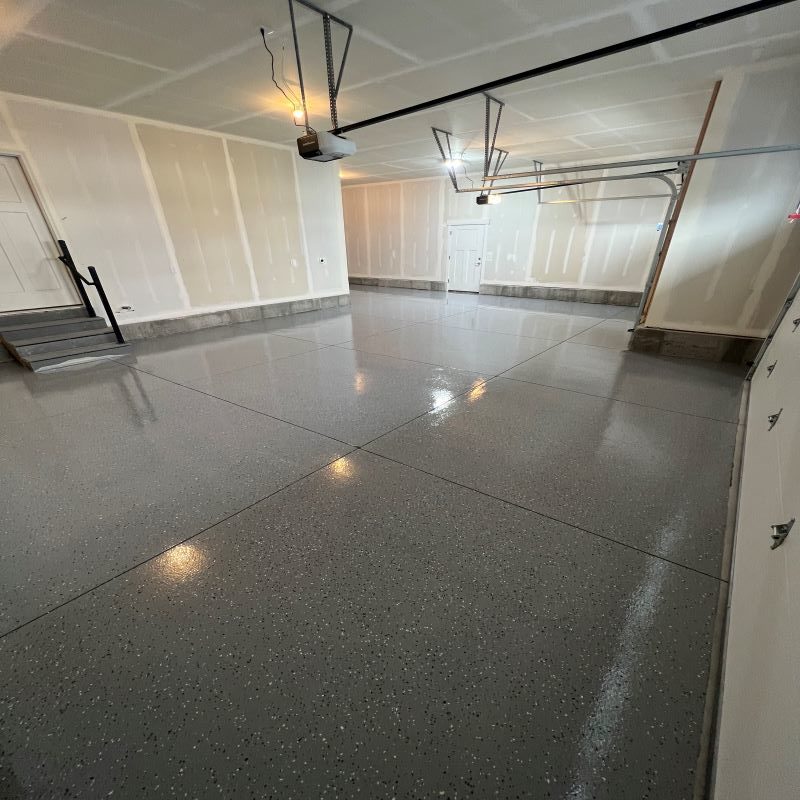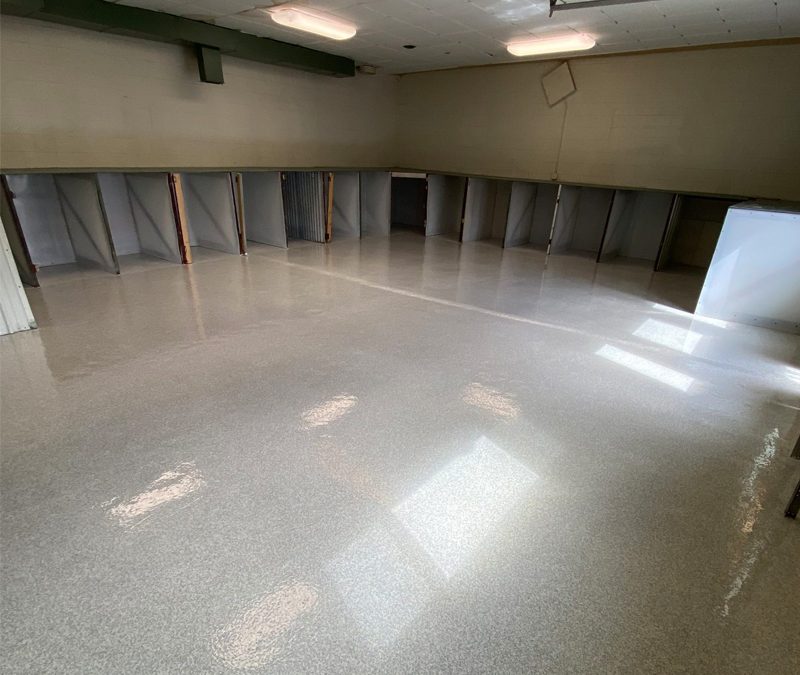The Pros and Cons of Epoxy Basement Floor Installation
Are you looking for an attractive yet practical way to upgrade your basement’s appearance and functionality? Installing an epoxy floor might be the ideal solution! There are many advantages that come with installing this type of flooring, but it’s important to understand both sides before moving forward. In this blog post, we’ll explore the key pros and cons of epoxy basement floor so that you can better decide if it’s a right choice for you. Read on to learn more about how these features could benefit or hinder your home improvement plans!
Overview of epoxy basement floor and its benefits
One of the best ways to transform your basement into a functional and stylish space is by installing an epoxy floor. This type of flooring system consists of a mixture of epoxy resin and hardeners, which creates a durable, seamless surface on concrete. Epoxy basement floors are highly resistant to stains, spills, and moisture, making them ideal for any basement environment. Aside from its practical benefits, epoxy flooring also provides a sleek, polished finish that can instantly elevate the look of any room.

Basement Epoxy Flooring Service
Pros of Installing an Epoxy Basement Floor
Tired of your damp and musty basement floor? Say goodbye to that unpleasant odor by epoxy basement floor installation! Not only does it make your space look sleek and polished, but it’s also incredibly durable and resistant to stains and spills. With the ability to customize the color and design, you’ll have a floor that’s unique to your home. Plus, it’ll increase the value of your property and be a long-term investment for your family.
Cons of Installing an Epoxy Basement Floor
While an epoxy basement floor may seem like a great option at first glance, there are actually several drawbacks to consider before making the investment. For one, the process of installation can be quite labor-intensive and time-consuming, requiring special equipment and expertise. Additionally, the cost of materials and labor can add up quickly, making it a more expensive option than traditional flooring choices. Perhaps the biggest downside, however, is that epoxy floors are prone to cracking and peeling over time, particularly if not installed properly. This can lead to costly repairs down the line.
Tips for successful installation of epoxy basement floor
When it comes to sprucing up your basement, installing an epoxy floor is a great option that can give it a durable and sleek finish. However, it’s important to keep in mind a few tips to ensure it’s done successfully. The preparation process is key to achieving a flawless finish – make sure the concrete surface is clean, dry, and free of cracks before applying the epoxy. Be sure to work in sections and apply the epoxy evenly to avoid any spots that may peel or bubble later on. Finally, allow ample time for the epoxy to set and cure before allowing any foot traffic or heavy furniture on it.
Alternatives to epoxy basement flooring
When it comes to flooring options for your basement, epoxy is often touted as the go-to choice. However, there are plenty of alternatives worth considering if you want a more unique or budget-friendly option. One popular option is carpet tiles, which offer not only warmth and cushioning but can also be replaced easily if damaged or stained. Vinyl plank flooring is also gaining popularity for its realistic wood and stone patterns, durability, and easy installation. And if you’re looking for something truly unique, consider staining or painting your concrete floors with fun patterns or designs.
Final thoughts on the pros and cons of installing an epoxy basement floor
When it comes to choosing a flooring option for your basement, epoxy is certainly a strong contender. There are several benefits to this type of flooring, including its durability and resistance to moisture and stains. Additionally, epoxy floors are easy to clean and maintain, making them a convenient option for any homeowner. However, as with any flooring choice, there are also some drawbacks to consider. For example, epoxy floors can be quite slippery when wet, which could be a potential hazard. They also require special preparation and installation, which can be time-consuming and expensive.
Installing an epoxy basement floor can be a great way to increase the value of your home while providing durability, stain resistance, and easy maintenance. However, it is important to weigh all pros and cons before making this investment. With the right knowledge and preparation, installing an epoxy basement floor can be successful. Remember to select the right type of epoxy and prep the surface for proper installation. However, if you are still uncertain about this option, there are some alternatives available such as concrete or vinyl tile that will provide similar benefits in a more accessible manner. Ultimately, deciding whether or not to install an epoxy basement floor should depend on your particular needs and preferences; no two situations are exactly alike.

Epoxy Basement Flooring

